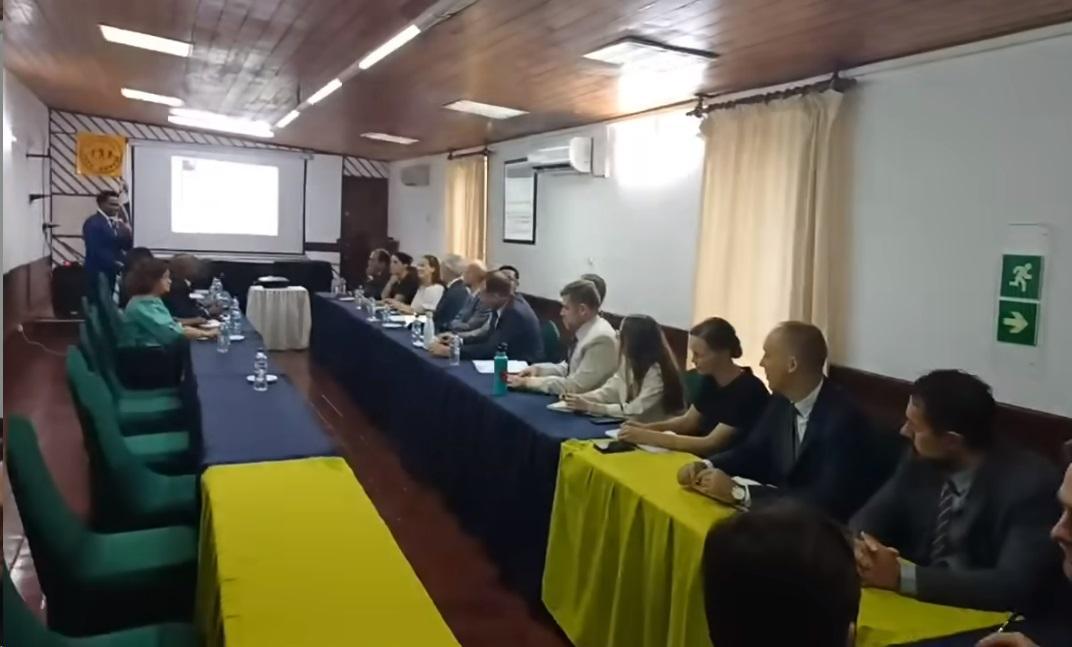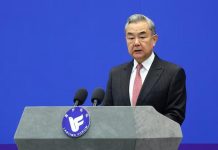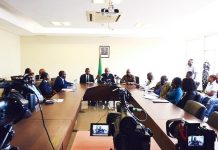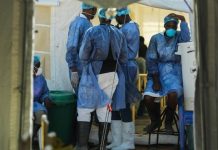Africa-Press – Mozambique. Renamo, Mozambique’s largest opposition party, said on Thursday that it had “technically” demonstrated to the diplomatic corps accredited in the country why it claimed victory in the local elections on 11 October and why it disputes the official results.
“Firstly, to give an update on the contestation package that Renamo is making in relation to the election results announced, validated, by the Constitutional Council [CC], which led Renamo to disagree with the judgement itself,” said Venâncio Mondlane, candidate of the largest opposition party in the capital and one of the elements that met today in Maputo with some representatives of the Diplomatic Corps.
“The second point was to present technically what are the grounds that lead Renamo to declare victory where it has declared that it has won, and to present the evidence that supports this declaration of victory,” he explained.
For the candidate and deputy of the Mozambican National Resistance (Renamo), it was also “important” to listen to the diplomats, to find out “what their perception is” of the municipal electoral process and “what recommendations they give, both to Renamo and also to the country”, in order to “be a moment of learning and reinforcement” of their own knowledge and “looking ahead to the 2024 process”, with general elections taking place in October.
He pointed out that the ambassadors and representatives of international organisations in Mozambique once again pointed out the level of implementation of the recommendations for electoral processes, “more than 20 years old”, which “have not been implemented”.
“Some work needs to be done. Renamo is represented in parliament, and work needs to be done on the level of implementation of these recommendations (…) Secondly, Renamo itself needs to start presenting concrete proposals to revise the law,” concluded Venâncio Mondlane, who claims victory in the capital in the local elections, based on the original minutes and notices, with 55% of the votes, but which was attributed by the CC to the Mozambique Liberation Front (Frelimo).
On 24 November, the CC, the electoral justice body of last resort with the power to validate elections in Mozambique, proclaimed Frelimo the winner of the local elections in 56 municipalities, against the previous 64, with Renamo winning four, and ordered repeat elections in another four.
The streets of some Mozambican cities, including Maputo, have been taken over by consecutive demonstrations by the opposition against what they consider to have been a “mega-fraud” in the local elections process and the results announced by the National Electoral Commission (CNE), which have also been strongly criticised by civil society and non-governmental organisations.
On 7 December, Mozambique’s minister of foreign affairs and cooperation, Verónica Macamo, rejected pressure from the international community over the country’s electoral process and stressed that the issue should be dealt with by local institutions.
“I don’t think it’s such a serious problem for the international community. We haven’t felt so much pressure from the international community,” she told Lusa at UN headquarters, emphasising that the international community knows that the issue should be dealt with “by Mozambican institutions and by Mozambicans”.
Last month, the minister – who was also Frelimo’s national spokesperson for the 11 October vote – met with several diplomatic missions in Maputo and told them that she believes the municipal process will “end well”, asking the international community to trust the country’s institutions to resolve the disputes.
On 16 October, the United States of America acknowledged the “credibility” of the reports on “irregularities” in the Mozambican local elections, asking the country’s authorities to consider all the complaints lodged, and the European Union this week pointed to “irregularities” in the process, calling for “legislative improvements”.
For More News And Analysis About Mozambique Follow Africa-Press






